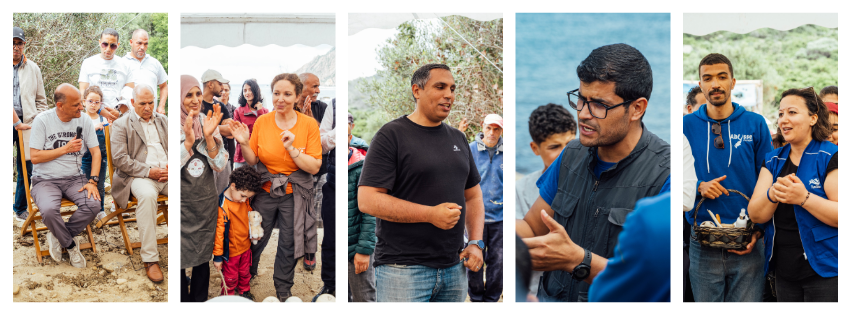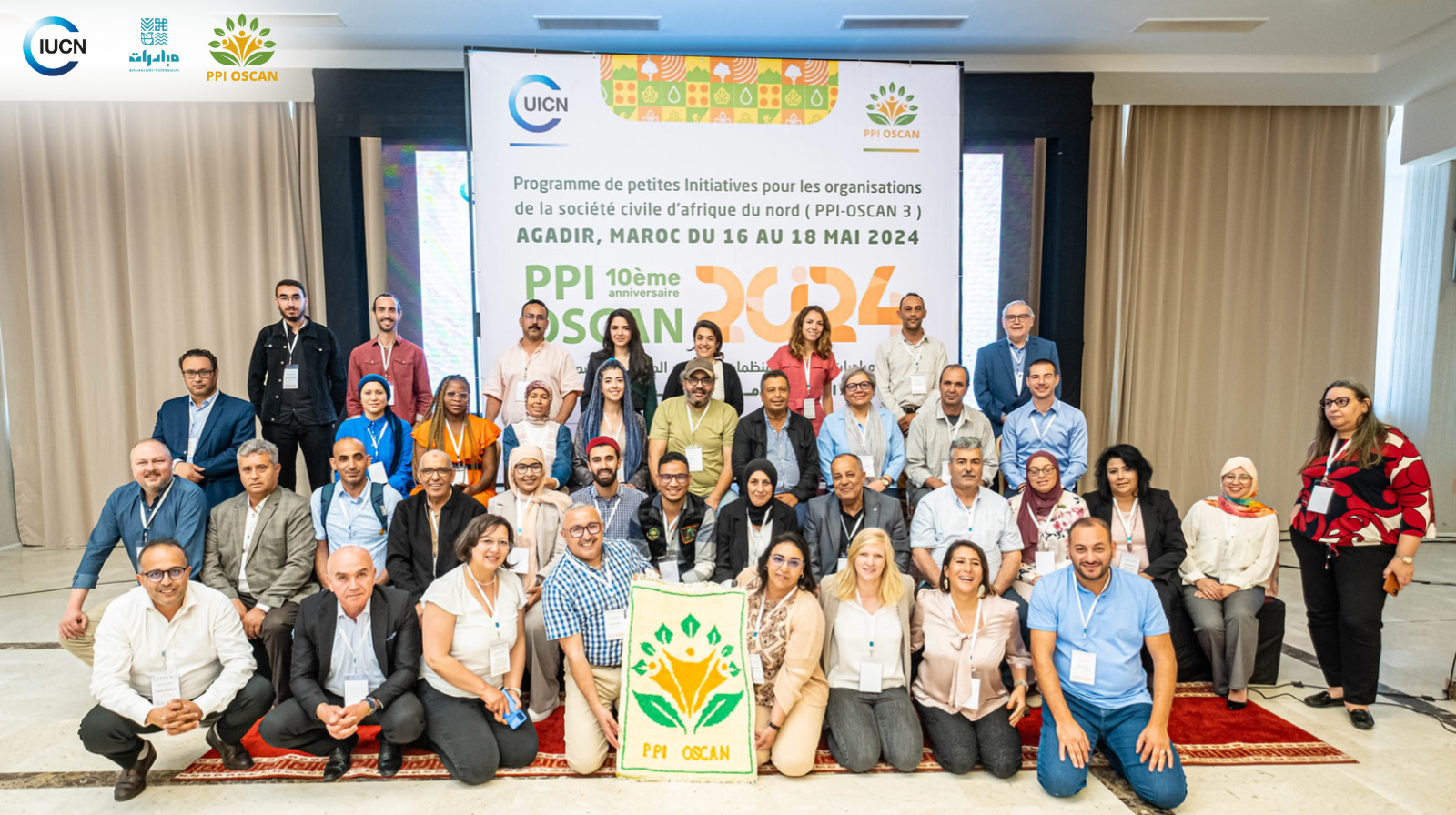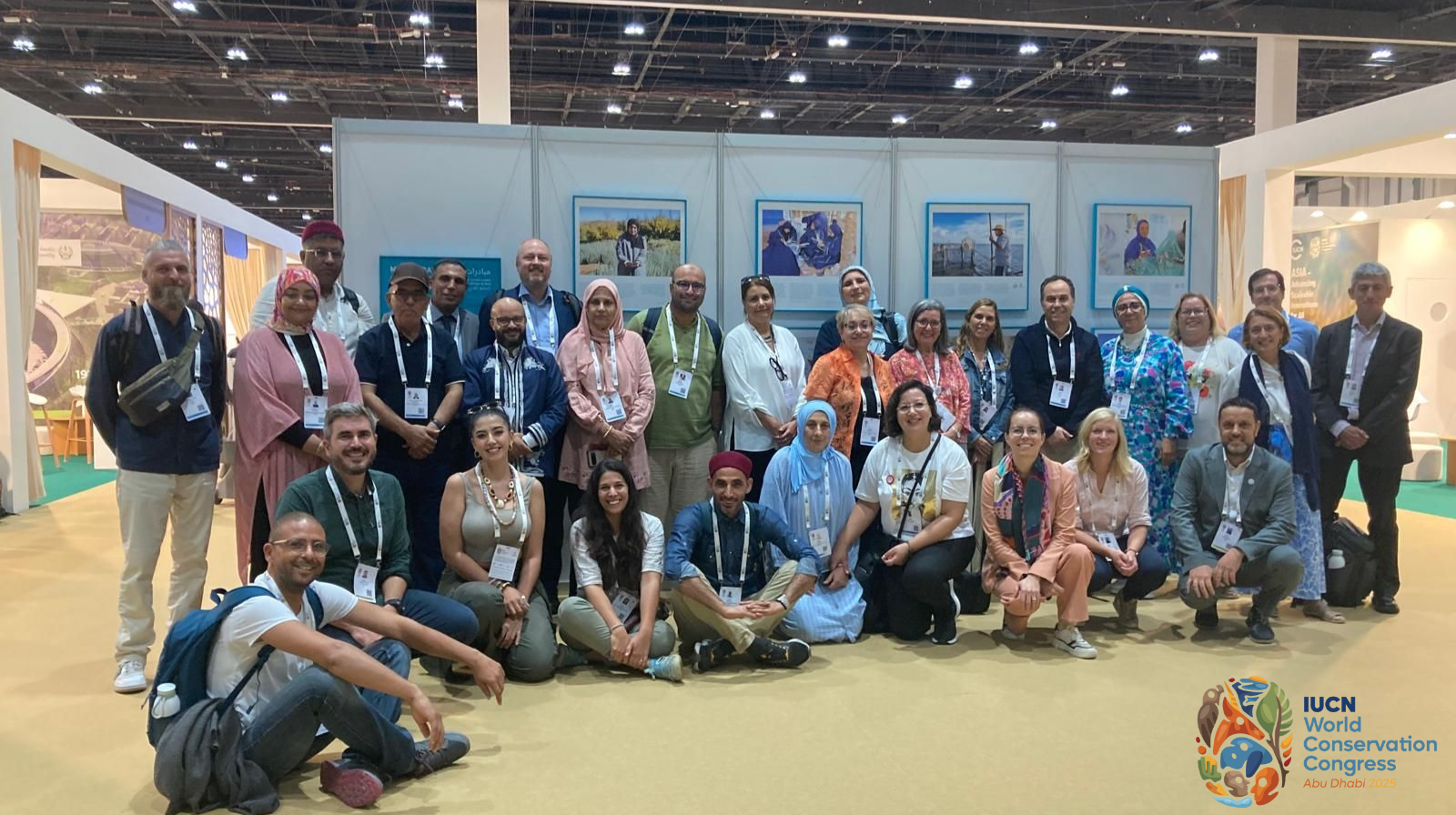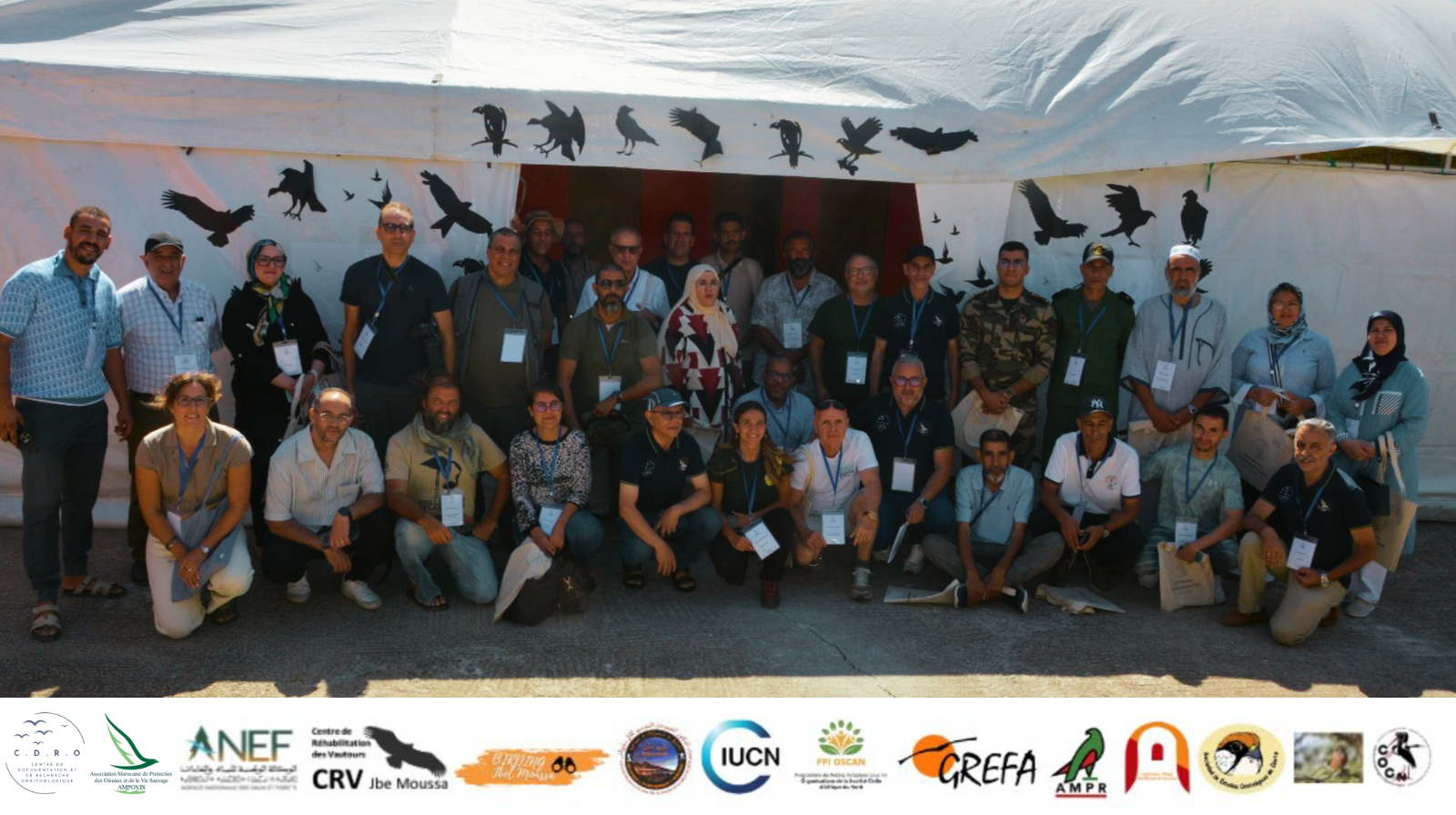An innovative model of marine co-management supported by TunSea and artisanal fishermen

©Hedi Chouchane for TunSea
Celebrated this year under the theme “Harmony with nature and sustainable development” the 2025 International Day for Biological Diversity highlights the urgency of a joint effort to link biodiversity protection with investment in conservation. In Melloula, a small village in the northwest of Tunisia, a project led by a young organization embodies this synergy.

©Hedi Chouchane for TunSea
On May 25, 2025, the closing ceremony of the project “The Hidden Treasures of Melloula Bay”, implemented by the association TunSea for citizen science as part of the third phase of the TransCap program in Tunisia—supported by IUCNMed and funded by the General Directorate for Cooperation of the Government of the Balearic Islands (Ministry of Social Affairs and Sports)—marked a milestone in this dynamic. This event was also the official inauguration of the first community-managed underwater trail in Tunisia.
The ceremony was attended by numerous partners and institutional representatives, including the regional delegate and Member of Parliament, the Secretary General of the Tabarka municipality, the Regional Commission for Agricultural Development (CRDA) of Jendouba, the Regional Tourism Office of Jendouba, L’Agence de Protection et d’Aménagement du Littoral (APAL), the National Institute of Marine Sciences and Technologies (INSTM), the Tabarka Fisheries School, the national maritime and land guards, the civil protection services, the president of the Jendouba Fisheries Unit, local associations, the company Dar El Ain, and locals from the region.

©Hedi Chouchane for TunSea
Over 300 participants came together around a shared vision: a resilient marine ecosystem in harmony with local communities.
Founded barely a year before its integration into the IUCN Med TransCap program, TunSea has taken on a bold challenge: to demonstrate how, through an inclusive approach, local communities—particularly fishers and families—can become active players in conservation. Throughout the project, several training sessions were offered to participants to prepare them to take on the role of co-managers of the underwater trail. This initiative demonstrates that preserving natural resources is possible when rooted in community engagement and a shared vision for sustainable development.
With support from the IUCN Centre for Mediterranean Cooperation and the General Directorate for Cooperation of the Balearic Islands, this young and motivated team managed to engage artisanal fishers and local women around a common objective: to highlight the ecological wealth of the bay while strengthening the local social and economic growth.

©Hedi Chouchane for TunSea
The celebration day featured several key moments, including:
-
The inauguration of Tunisia’s first community-managed underwater trail, co-designed with local fishers
-
A participatory dialogue on sea safety and resource conservation
-
A storytelling circle led by fishers, sharing traditional knowledge and stories
-
Children’s workshops on marine biodiversity
-
A tasting of seafood prepared by local women using traditional recipes
Through this project, the association aims to reinforce the case for designating Melloula Bay as a Marine Protected Area, while raising awareness among stakeholders about the importance of its preservation.

©Hedi Chouchane for TunSea
Mr. Maher Mahjoub, Director of the IUCN Centre for Mediterranean Cooperation, recalled that the MUBADARAT program has supported more than 110 associations since 2014. “Through our civil society support programs in North Africa, we continue to empower emerging organizations that promote nature-based solutions, placing coastal communities at the heart of action,” he emphasized.
Present at the event, Mr. Mohamed Ali Ben Tmessek, Director of Ecology and Natural Ecosystems at the Ministry of Environment, praised the project’s alignment with national priorities. “It is essential to work with local stakeholders to implement the pillars of our strategy. This project perfectly illustrates the key role of civil society and the innovative approach led by TunSea on the ground,” he said.
This project is a vibrant testimony to the central role that youth-led associations can play in the future of conservation—provided they are recognized and supported.

©Hedi Chouchane for TunSea
Mr. Hatem Ben Belgacem, IUCN focal point in Tunisia and representative of the Ministry of Environment, highlighted the strong potential of Melloula Bay to become a future hub of attraction and Marine Protected Area, where nature and local communities coexist sustainably. He commended TunSea’s initiative and confirmed the Ministry’s commitment to working with all stakeholders to advance Tunisia’s biodiversity commitments, particularly under the “30×30” Global Biodiversity Framework target to protect 30% of terrestrial and marine areas by 2030. This target is part of the Kunming-Montreal Global Biodiversity Framework adopted at COP15.

©Hedi Chouchane for TunSea
Despite all efforts to promote responsible and sustainable pescatourism, Tunisia still lacks specific legislation to regulate this activity and similar practices. TunSea aspires to replicate this innovative model in other regions of the country, to strengthen marine conservation while supporting local communities. The Ministry of Environment, aware of these challenges, has expressed its support and commitment to working with relevant stakeholders to establish an appropriate regulatory framework.
By relying on local actors, the TransCap program, as part of IUC Med’s regional initiative Mubadarat, helps build the capacities of Mediterranean civil society toward a more resilient, equitable, and nature-based future for the region.
Discover more about the project and its actions via this link.
You too can highlight your organization’s contributions to biodiversity! Share your actions on the IUCN global Contributions for Nature platform: https://www.iucncontributionsfornature.org/fr/countries/220







